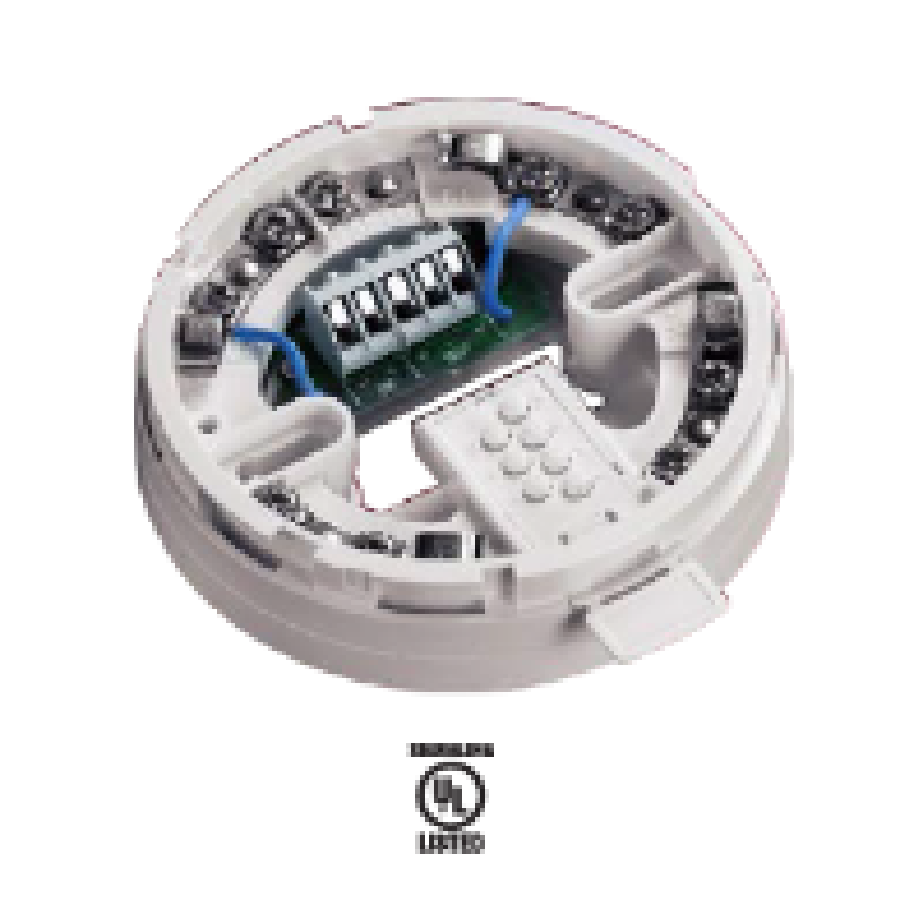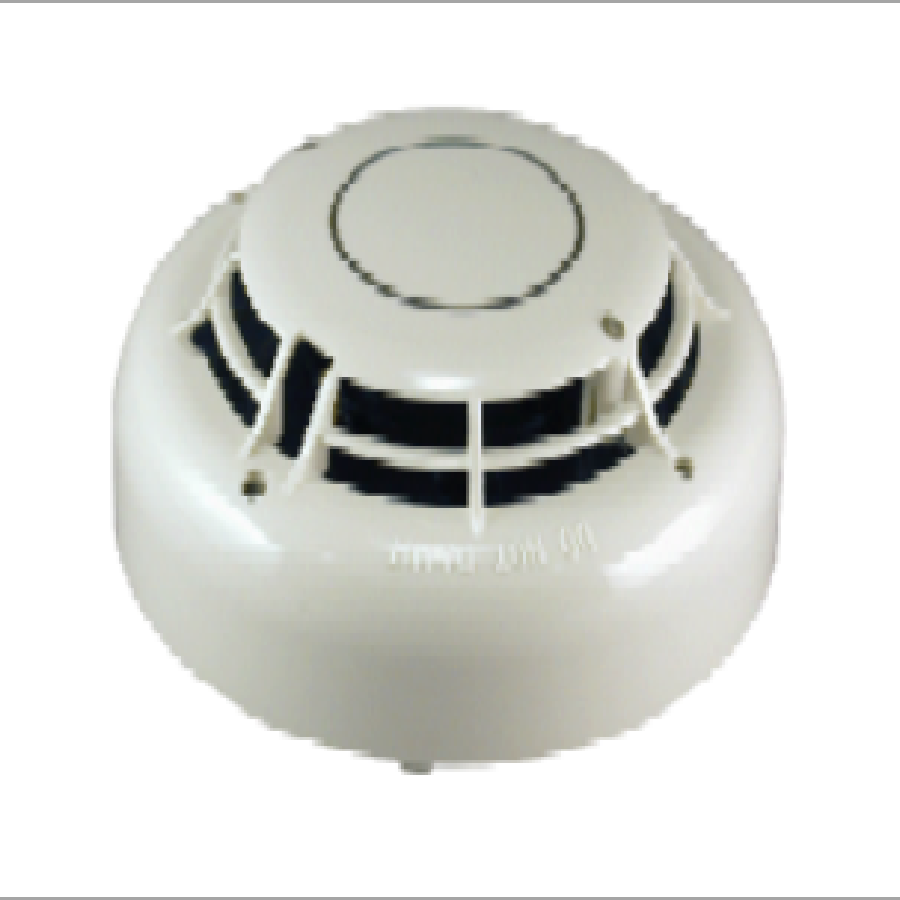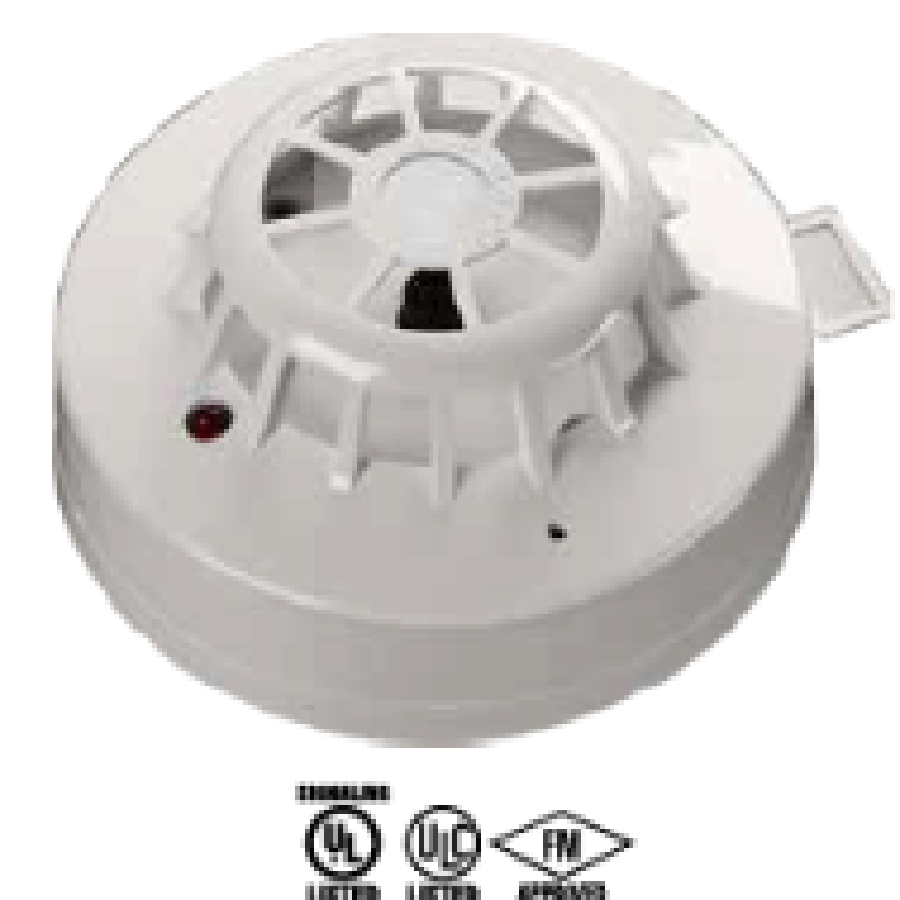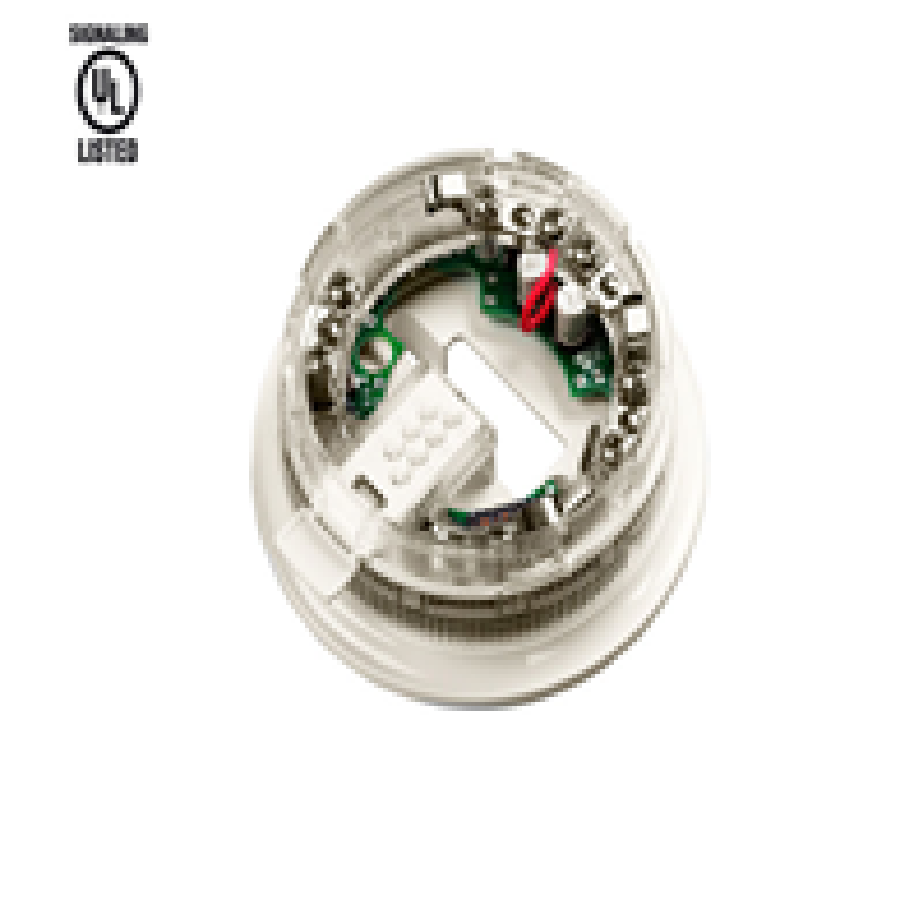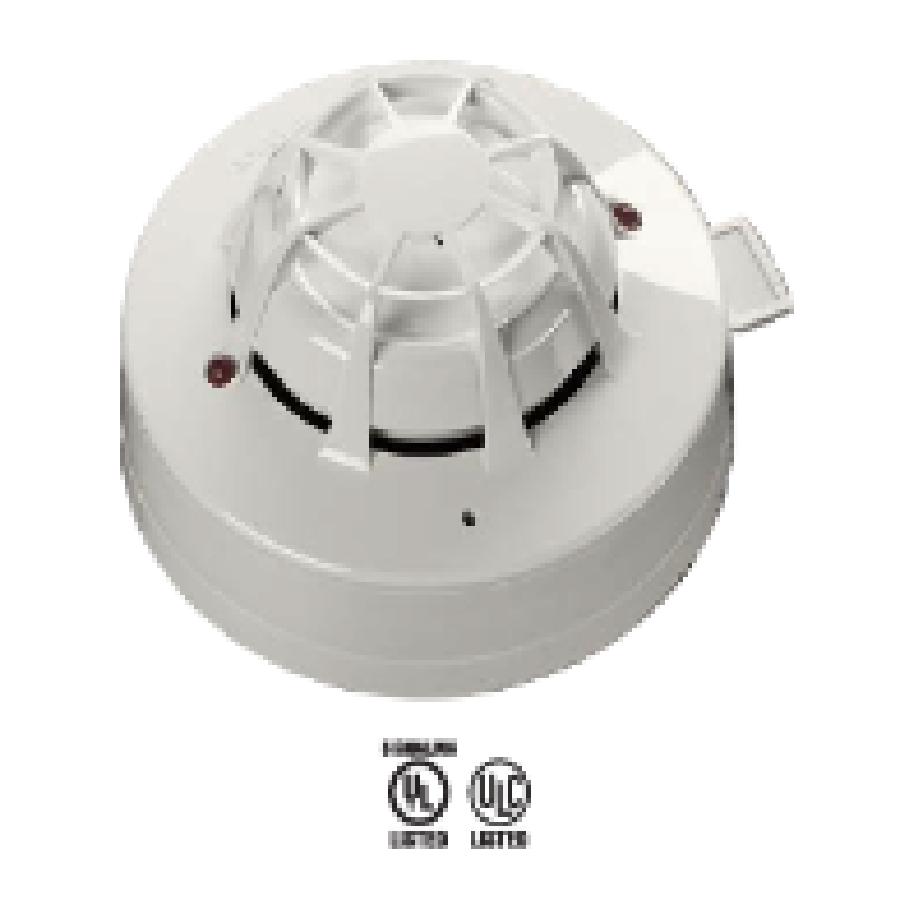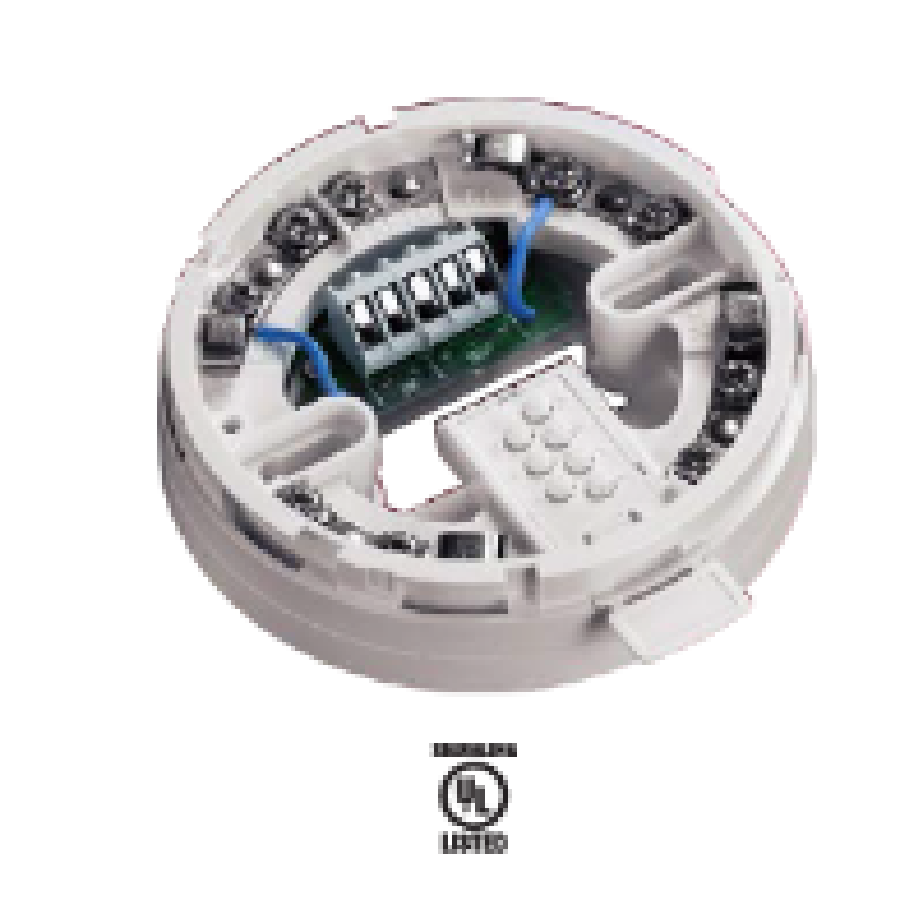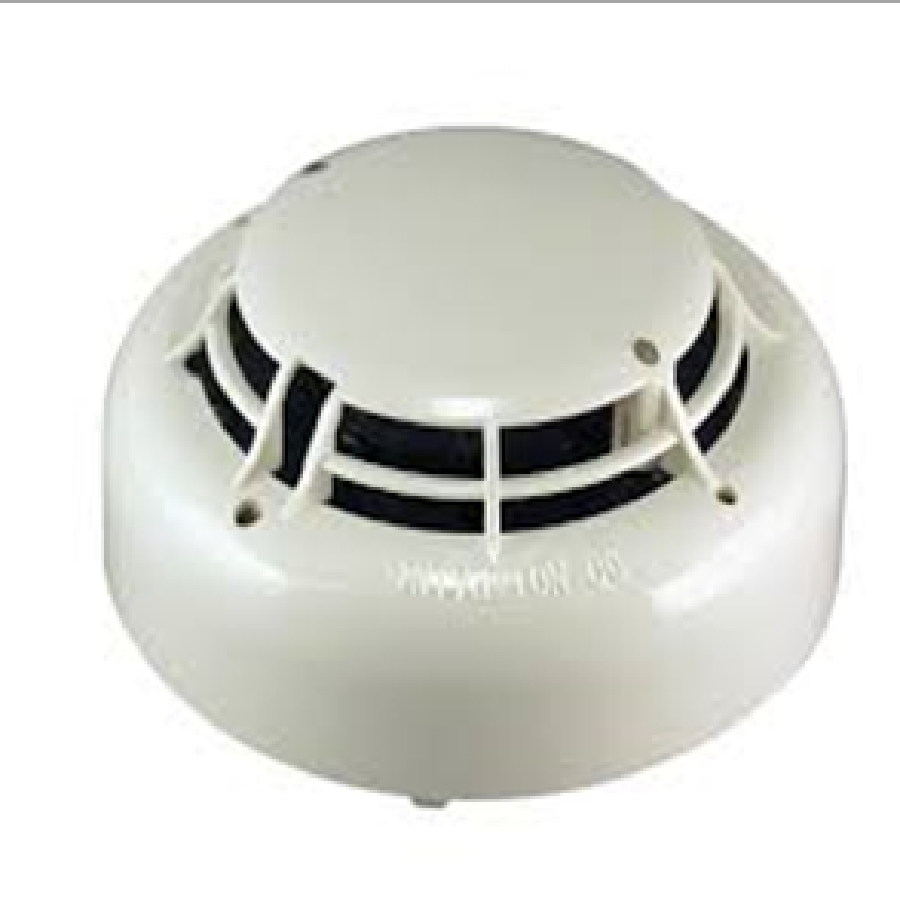
PHOTOELECTRIC SMOKE SENSOR
Product Code : ALN-V
The detection chamber consists of a light-emitting diode (LED) and photodiode arrangement. The chamber is designed such that light emitted by the LED cannot normally reach the photo diode. In the eve
Other Product
The detection chamber consists of a light-emitting diode (LED) and photodiode arrangement. The chamber is
designed such that light emitted by the LED cannot normally reach the photo diode. In the event of fire, particles of smoke
enter the chamber and scatter the light. As the smoke level increases, the scattering effect increases, causing more
light to hit the photodiode. The chamber contains a unique baffle design which allows smoke to enter the chamber
while preventing external light from affecting the photodiode. The photodiode input level is sampled to sense smoke
density.
When the smoke density exceeds a preset threshold the sensor transmits an interrupt to the fire control panel
indicating a fire condition. The fire alarm control panel can adjust the sensor threshold to compensate for contamination.
Up to 127 devices are permitted on each SLC loop. A sensor address is set by a hand-held programming unit. The sensor
mounts to an electronics-free base and incorporates a locking mechanism for secure installation. The base provides
mounting slots, terminals for field wiring and a third contact for a remote indicator/LED. The sensor incorporates dual
LEDs for easy viewing of sensor status





